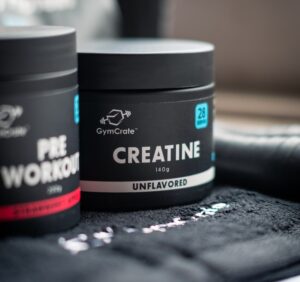
How Sleep Can Boost Training Recovery
Sleep is one of the best recovery tools available to us, so it’s important to get the right amount of quality sleep for your body. In this guide, we’ll look at exactly how sleep helps training recovery and how much sleep you should get.
How sleep aids recovery
When you get enough good quality sleep regularly, your body is better able to recover from training (as well as other stressors). Sleep is more than just resting. When you are in restful sleep, your body goes through thousands of changes that help training adaptation, recovery, and tissue repair.

Sleep and hormones
The body uses sleep for clearing and replacing cells that will help keep you healthy and strong. Sleep is also the time in which your body releases the largest amount of hormones that are key to recovery. During sleep, your body increases circulating amounts of human growth hormone (HGH), insulin-like growth factor (IGF-1), and testosterone, and lowers stress hormones like cortisol and adrenaline. This places your body in a highly anabolic state which is optimal for muscle growth and repair.
Numerous studies have explored the role of sleep in hormone production, but a 2019 paper in the journal titled “Current Topics in Behavioural Neuroscience” looked at the cyclical impact of sleep on the endocrine system, and the endocrine system on sleep. It stated:
“Sleep and the endocrine system exhibit a bi-directional interaction, with sleep behaviour having a strong influence on endocrine factors and endocrine factors reciprocally influencing sleep behaviour.” https://www.ncbi.nlm.nih.gov/pmc/articles/PMC6986346/
Which hormones boost recovery?
The key hormones released during sleep are HGH, IGF-1, and testosterone. HGH helps repair, build, and maintain tissue (including muscle tissue) and can help speed up recovery from training. IGF-1 is closely linked to binding proteins that are crucial for tissue repair. And testosterone is essential for muscle growth and mediating muscle mass.
Sleep and the nervous system
It’s important to remember that, whilst you love training, your body views every workout as a stressor. Training stimulates the central nervous system and puts you in a “fight or flight” state, driven by stress hormones.
In order to recover properly, you must switch from this sympathetic nervous system state to a parasympathetic state of “rest and digest”. Any rest will help you achieve this, but good quality sleep is crucial. If you don’t get enough sleep, your body is likely to be chronically stressed.
The 4 stages of the sleep cycle
Sleep occurs in stages, and it’s helpful to understand what these are so you can appreciate the importance of long, unbroken sleep. There are four stages of sleep: three stages of non-REM sleep and one of REM sleep. A full sleep cycle takes 90-110 minutes.
The biggest pulse of HGH secretion happens shortly after you fall asleep, and the third stage of non-REM sleep is your deepest sleep and the most significant for recovery.
How much sleep do I need?
There is no blanket recommendation for sleep, but most people need between 7-9 hours. The best way to assess your personal sleep needs is to keep a log of when you go to bed, when you wake, how you feel the next day, and judge the quality of sleep you received. This will help you figure out the amount of sleep your body needs.
Be aware that the amount of sleep you need to recover will vary throughout your lifetime depending on other stresses, injury, illness, and training. The American Academy of Sleep Medicine and the Sleep Research Society released a joint consensus statement in 2015, which stated:
“Sleeping less than 7 hours per night on a regular basis is associated with adverse health outcomes, including weight gain and obesity, diabetes, hypertension, heart disease and stroke, depression, and increased risk of death. Sleeping less than 7 hours per night is also associated with impaired immune function, increased pain, impaired performance, increased errors, and greater risk of accidents. Sleeping more than 9 hours per night on a regular basis may be appropriate for young adults, individuals recovering from sleep debt, and individuals with illnesses.” https://www.ncbi.nlm.nih.gov/pmc/articles/PMC4434546/







